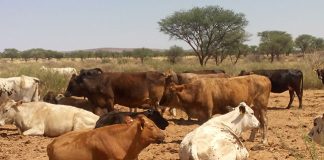According to the Southern African Plastic Pipe Manufacturers’ Association (SAPPMA), which was not involved in any of the wrongdoing, the SA industry currently produces about 140 000t of polyvinyl chloride (PVC) and high density polyethylene (HDPE) piping annually. This is for, primarily, the country’s water distribution, sewage, mining, building, telecommunications and agricultural sectors with farmers using the pipe for on-farm water distribution.
Investigation
A Competition Commission investigation, begun in 2008, found that DPI Plastics, Marley Pipe Systems, Petzetakis Africa, Swan Plastics, Amitech SA, Flo-Tek Pipes and Irrigation, Andrag, Gazelle Plastics and Engineering, and MacNeil Agencies, allegedly colluded to fix prices, rig tenders, and divide markets by allocating contracts and customers.
In February 2009 the commission referred the matter to the Competition Tribunal for adjudication. The commission subsequently reported, in early July, that DPI Plastics had received immunity from prosecution in terms of its corporate leniency policy. Marley Pipe Systems, Swan Plastics and Flo-Tek Pipes and Irrigation, meanwhile, entered into consent orders with the commission, agreeing to pay administrative penalties of approximately R31 million, R7,6 million and R5 million respectively.
While the tribunal dismissed cases against Gazelle Plastics and Engineering, and Andrag, it posed administrative penalties of R2 million on MacNeil Agencies, R11,1 million on Amitech SA, and R9,92 million on Petzetakis Africa. Lindie Stroebel, manager for economic intelligence and finance with the Agricultural Business Chamber (AgBiz), said it’s difficult to calculate the quantities of plastic piping used in SA agriculture and therefore the economic impact the anti-competitive practices have had on the sector.
Input costs
“Some anti-competitive behaviour is theoretically linked to effects on end consumers, because the increasing effects of input prices affect costs of production of end products,” said Stroebel. AgBiz complained that it had, for some time, been trying unsuccessfully to get the commission and tribunal to issue clear rules and regulations on what constitute anti-competitive practices so that companies did not inadvertently break the law.
Relief
Referring to the tribunal’s recent judgement, SAPPMA CEO Jan Venter said: “The law has taken its course and we’re glad that this unpleasant event is finally concluded. “The plastic pipe industry is a key player in the development and maintenance of the country’s infrastructure, and with the sword over our collective heads now gone we can focus on providing the best quality service.”
Petzetakis Africa received an 80% discount on its final administrative penalty because its managing director, Michelle Harding, had blown the whistle on the plastic piping industry’s anti-competitive practices.“It’s important to signal to the business community that the public disavowal of cartel arrangements won’t go unrecognised when it comes to the imposition of a sanction,” the Tribunal stated with regards to Harding’s whistle blowing actions












